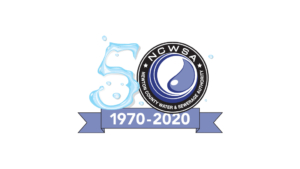A. Scott Emmons Water Reclamation Facility
Newton County Water & Sewerage Authority
DATE OF SERVICES: June 2017 – May 2022
PROJECT STATUS: Complete
ROLE OF FIRM:
- Project Planning, Management, Coordination & Quality Control
- Design Update (Plans and Specifications)
- Environmental Permitting & GEFA Coordination
- Bid and Construction Administration
- RPR Services/Daily On-Site Observation
PROJECT TEAM:
- Burke Murph – Project Manager
- Matt Taylor – Senior Project Engineer
- Michael Griffore – Senior Designer
- Claire Swaim – Project Engineer
- Barrett Neal – Assistant Project Manager
- Casey Piper – Regulatory Compliance/Resident Project Representative
CLIENT: Newton County Water & Sewerage Authority
PROJECT DESCRIPTION:
The Newton County Water and Sewerage Authority (the Authority) requested engineering services to review and update previously completed (2010) plans and specifications as necessary for permitting by the Georgia Environmental Protection Division, and ultimately in preparation for advertisement and bidding. The target permitted capacity for the updated plans and specifications was 1.25 MGD. GWES’ scope included the preparation and submission of a LOI to EPD, re-application for Waste Load Allocation, reviewing and updating the Anti-Degradation Report, Environmental Impact Document, Design Development Report, Equipment Matrix, existing project drawings and specifications, and Hydrology Study, developing an opinion of probable construction cost, submitting the Environmental Review and Planning Document to GEFA, submitting plans and specifications to EPD for Review, and preparing bid set documents for the Construction Manager at Risk (CMAR) bid solicitation.
The engineering design phase was completed in January of 2019 and the Authority was approved for a $25 million GEFA loan in February 2019. The Authority contracted with Reeves Young for CMAR to construct the 1.25 MGD A. Scott Emmons Water Reclamation Facility at the Littler River. GWES was contracted as the project engineering consultant.
Throughout Phase I construction, our project team provided Resident Project Representative (RPR) services that included providing project management and coordination, reviewing submittals and shop drawings, reviewing RFIs and issuing clarifications, witnessing applicable testing, providing daily on-site observation, reviewing monthly pay requests, attending weekly progress meetings, and providing aerial drone services. Project highlights included Dutchland precast structure installation, GEFA funding program management, and value engineering construction cost reduction of $8 million.



